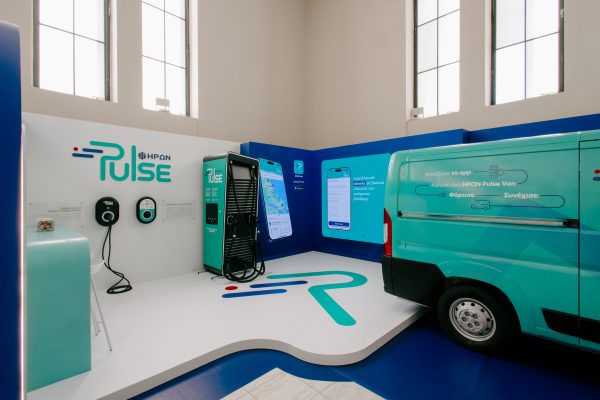
Conversely, commercial companies count on both Black Friday and Cyber Monday, escalating their communication policy with tempting offers on products that reach up to 80%. The “dance” of offers has already included, among others, large chains of electrical and electronic items, cosmetics companies, sports furniture, home appliances, footwear, seasonal items and supermarkets, while discounts are also offered in online stores.
This year’s Black Friday may not take place under lockdown conditions, like last year’s, but the adequacy of products on the shelves due to supply chain problems and measures to reduce the coronavirus pandemic are troubling the market. At the same time, companies are called upon to meet once again the challenge of online shopping, to confront their strengths and to overcome any problems in the delivery of goods, similar to last year. Moreover, both Black Friday, Friday 26 November and Cyber Monday three days later, on 29 November, mainly for online shopping, will be a new crash test for businesses, in terms of how they will be able to respond to increased consumer purchasing needs.
How will Greek consumers shop this year?
According to a survey by Sitecore “Holiday Shopping Trends 2021” more than half of Greek consumers (59%) intend to shop during the Black Friday period. In fact, the majority of consumers say they will take advantage of Black Friday to do their Christmas shopping. Among those who say they intend to shop, 41% of consumers said they would combine online and offline shopping with younger consumers slightly favoring online shopping (45%). However, there were 18% who said they were not going to shop on Black Friday, with the three main reasons behind such a decision being that the day has become synonymous with the culture of overconsumption and that it seems outdated, that it does not now offer good deals and that it attracts too many people. In terms of shopping categories, with the exception of travel and games, where 54% and 37% respectively say they will go online, the majority of purchases for entertainment services (45%), clothing (41%), beauty (43%) %), food and drink (69%) will take place with a visit to a store, showing a shift of consumers to physical markets after the restrictions imposed by the pandemic in the country. In addition, a large percentage of consumers (65%) stated that they prioritize discounts and offers when shopping online, while almost half of consumers (45%) say they are looking for offers given exclusively to members of loyalty programs. On the other hand, older consumers place more emphasis on discounted products. Finally, a significant percentage of younger people intend to make their purchases through video calling (18%), focusing on the market limited edition products (26%), but also services that the whole family can enjoy (20%).

The interest in fashion items also remains intense. According to a recent Fashion survey by GLAMI, only 11% answered that they are not going to buy fashion products (out of a total of 4,022 participants) to the corresponding survey question. It seems that the Greek public is divided among those who are waiting for Black Friday in an organized way (53% stated that they will plan what they will buy, with or without preparation eg list, market research, etc.) while 45% of respondents will not plan out in advance what they are going to buy and just look for the best deals during Black Friday. For those who answered that they do not intend to buy, the two most important negative factors are that they find discounts throughout the year (38%) and that it can lead them to unnecessary purchases (20%).
Recommendations for consumers and businesses
In anticipation of this year’s holiday season and the upcoming discount days (Black Friday and Cyber Monday), consumer associations are making recommendations for cool and responsible shopping by consumers. The basic rules that consumers should follow include, but are not limited to, market research and price control (initial and final) but also the quality of the products. They should also limit their needs and plan a shopping list that will be in line with their family budget, avoiding reckless spending. Consumers should be informed of the details and terms of their transaction when purchasing products in installments as well as ask for proof of the products they have purchased, so that in case they are defective they can return or exchange them.
The National Telecommunications and Post Commission (EETT) addressed recommendations to consumers, for their best service and in order to avoid problems during the process of receiving their electronic orders. Specifically, consumers are advised to be informed about the availability of the product, the cooperating courier company, the estimated delivery time, the possibility of notifying them regarding the exact day it will be received, before confirming the order from an online store (e-shop). as well as its sending number (tracking number). It is also suggested that they monitor the delivery of their order from the tracking system on the website of the courier company. It is noted that the courier companies are obliged to make a second attempt to deliver the item, in case of absence of the consumer during the initial attempt, with a relevant written / electronic notice.

The consumer has the possibility to receive with a reservation or to declare a reservation within one day from the receipt of the shipment if the object delivered to him has been damaged or damaged. For the purpose of preventive protection of public health, it is allowed, exceptionally and only temporarily, the delivery of postal items by courier without the signature of the recipient and with the registration by the distributor, the unique personal identification code that has already been sent to you. In addition, the consumer has the right, conditionally, to claim compensation, within 6 months from the date of dispatch, for the improper provision of postal services (loss / destruction / overdue delivery). Compensation in the above cases is paid to the sender or, if he waives his rights, to the recipient of the postal item.
The Consumer Ombudsman and the European Consumer Center of Greece address recommendations to the postal providers for maintaining a high level of their services. In particular, in order to meet as effectively as possible the expected increased demand for postal services, they are talking about filling any identified gaps and timely preparation, where required, of material and technological infrastructure. They suggest the satisfactory staffing of the front desk services (store and telephone service staff), logistics (storage) and last mile (delivery from the distribution centers to the end user), so that delays and other possible phenomena of poor postal services are not observed again. They are also focusing on ensuring the ability to pay for cash on delivery by electronic means (POS) not only at post offices, but also to distributors who deliver to homes, for the best possible customer service. Finally, they recommend the rapid and effective management of consumer complaints, as well as the rapid response to calls from public authorities for cooperation in matters of compliance and implementation of existing legislation.
Latest News

Economist: Greece Included in the Best Performing Economies in 2024
Meanwhile, Northern European countries disappoint, with sluggish performances from the United Kingdom and Germany.

EasyJet Expands Its Routes from Athens
The airline’s two new routes will be to London Luton and Alicante and they will commence in summer 2025.

Capital Link Forum Highlights Greece’s Economic Resurgence; Honors BoG Gov Stournaras
Capital Link Hellenic Leadership Award recipient, Bank of Greece Gov. Yannis Stournaras, an ex-FinMin, was lauded for his pivotal role during Greece’s economic recovery

Tourist Spending in Greece Up by 14%, Visa Card Analysis Shows
Greece’s capital Athens emerged as the most popular destination, recording a 17% increase in transactions with Visa cards, surpassing even the cosmopolitan island of Mykonos.

Inflation in Greece Unchanged at 2.4% in Nov. 2024
The general consumer price index (CPI) posted a 0.4% decrease in November compared to the previous month

2024 Christmas Holidays: Extended Shop Hours Schedule
The 2024 Christmas Holidays extended shop hours schedule commences on Thursday, December 12 and runs until the end of the year.

ELSTAT: Seasonally Adjusted Unemployment Down in October
The number of employed individuals reached 4,284,694, an increase of 67,723 compared to October 2023 (+1.6%) and 22,002 compared to September 2024 (+0.5%).

Greek PM’s Chief Economic Adviser Resigns
In the post on his Facebook page, Patelis did not disclose the reasons that led him to step down.

“Masdar Invests in the people of Greece and in the vision of TERNA ENERGY”
Four messages from the CEO of Masdar, the Arab renewable energy giant, after its acquisition of 70% of TERNA ENERGY

Lloyd’s List Greek Shipping Awards 2024: Honors for leading companies and personalities in the Greek shipping sector
20 awards presented at the 21st annual Lloyd's List Greek Shipping Awards


















![Χειμερινή εξοχική κατοικία: Οι Ελληνες γυρνούν την πλάτη παρά την πτώση των τιμών [γραφήματα]](https://www.ot.gr/wp-content/uploads/2024/12/Capture-19-90x90.jpg)























 Αριθμός Πιστοποίησης Μ.Η.Τ.232433
Αριθμός Πιστοποίησης Μ.Η.Τ.232433